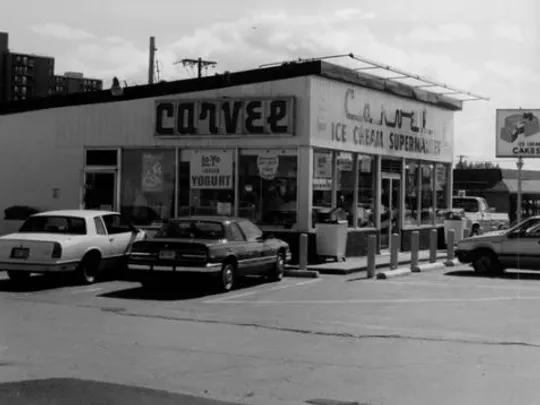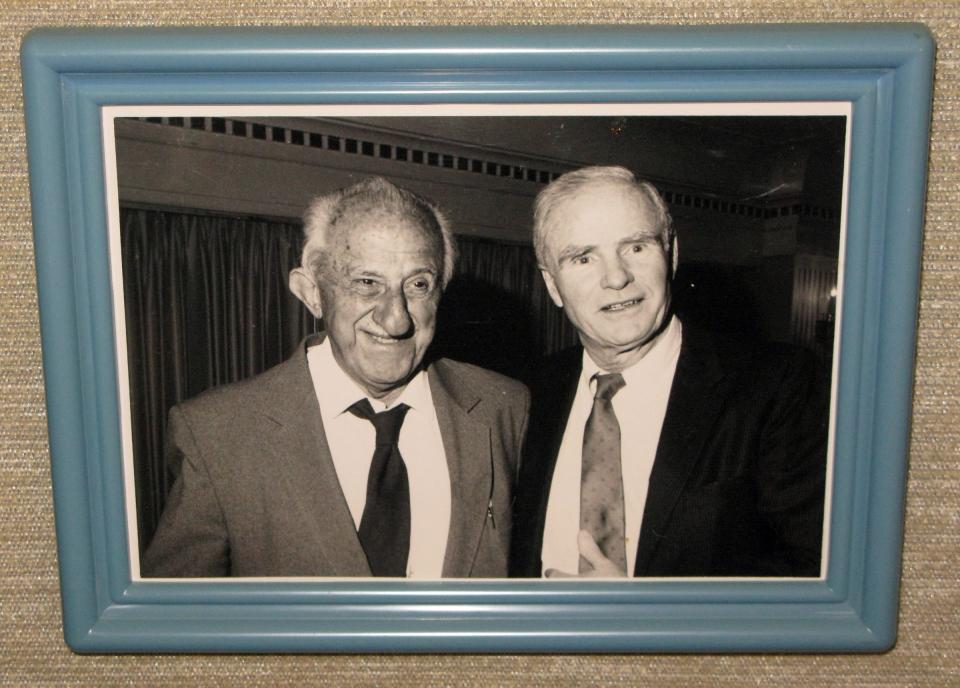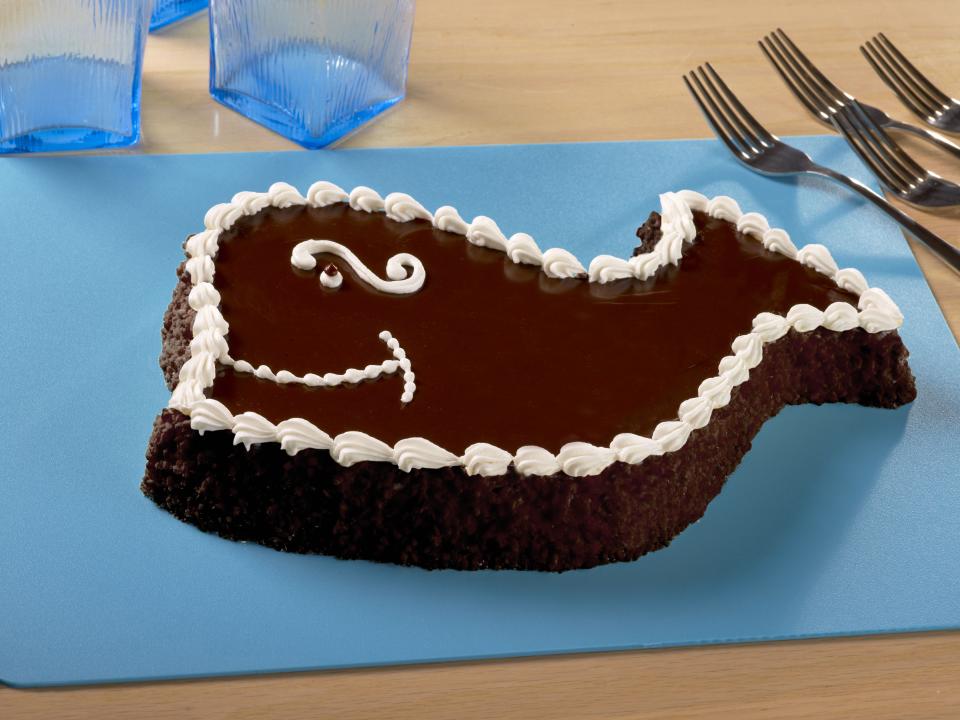The history of ice cream and Carvel runs deep in NJ. A new podcast examines it
- Oops!Something went wrong.Please try again later.
Carvel is widely known across the United States as an ice cream brand with frozen cakes and soft-serve treats from more than 330 shops nationwide.
But for generations, Carvel and its gravel-voiced, grandfatherly owner played a novel role in popular culture in the New York-New Jersey region, touting its fresh ingredients and "Wednesday is Sundae" promotions on regional TV and radio.
The rise of Tom Carvel from Greek immigrant to American ice cream icon was not as smooth as his products, and he made his share of enemies along the way. The light-and-dark, chocolate-vanilla swirl of his memorable life is now being explored in a new six-episode podcast series, “Cold Storage: The Life and Death of Tom Carvel.”
Mount Tabor resident Heather Quinlan remembers Carvel ice cream stands "practically everywhere" when she grew up in Bergenfield.

"There always seemed to be a Carvel with a huge line that you just dealt with, like at Disney World," said Quinlan, a documentarian whose feature-length film about the New York accent, “If These Knishes Could Talk,” was screened at the Library of Congress.
Quinlan has teamed up with co-host Paul Finnegan, a native of Galway, Ireland, who has lived in Queens, since 1985. Finnegan, president of the Irish Business Organization in Manhattan, also hosts the podcast "CenterPieceNY," about Irish expatriates who live in the Big Apple.
The Carvel podcast premiered its first episode on July 19, with subsequent episodes dropping on Wednesdays. It can be found through Apple, Spotify, Google and iHeart.
The second and latest episode digs deep into pre-Carvel American history, when many American beer brewers took to making ice cream during Prohibition, expanding the nation's taste for what had been a rare treat for most before the widespread availability of modern refrigeration.
Quinlan explained that Carvel was born as Athanasios Karvelas in Athens, Greece, in 1906. He moved with his family to Connecticut, where his father became a winemaker for Greek American restaurants during Prohibition.
He began selling ice cream out of a truck in 1929 in Hartsdale, New York, and opened his first stand there in 1936. As he expanded his operation with refrigeration patents designed by his brother but credited to him, according to Quinlan, business boomed. He began selling franchises a few years later, and by 1986, there were more than 850 Carvel locations in operation, along with a growing line of retail ice cream cakes sold in grocery stores.
The original Hartsdale location closed in 2008. One of the few original Carvels still standing is in Hackensack.
"Worn down by constant lawsuits," Quinlan says, the 83-year-old Carvel sold his business to Bahrain’s Investcorp for $80 million in 1989. He died in 1990.

At his peak, Carvel was hobnobbing with the wealthy and powerful elite, playing golf with the likes of Jackie Gleason and Ed Sullivan, and socializing with politicians including former New Jersey Gov. Brendan Byrne. But he also made his share of enemies. A taskmaster known for ruling the franchises with an iron fist, Carvel was the target of a Federal Trade Commission antitrust lawsuit, which he won.
The conflicts continued after his death. "He had seven executors in his will, which meant that most of the money from his estate went to lawyers instead of Carvel’s widow, Agnes," Quinlan said.
"Tom Carvel was the type who would do anything for you if he liked you, or run you into bankruptcy if he didn’t," she said.
The fourth episode in the series claims Carvel "was about to fire those who ran his foundation — his lawyer, Robert Davis, and his secretary, Mildred Arcadipane — right before he died." That leads to speculation in the podcast that Carvel may have been killed.
Rough radio reads
But Carvel is perhaps best known for reading his own radio and TV spots, which featured his gruff, grating voice and awkward reads that complemented an overall amateurish approach, which resonated with his customer base.
Not wanting to pay a professional voice actor, Carvel insisted on doing the job himself, without rehearsals, out of a former motel in Yonkers that he converted into a "Carvel Inn" company headquarters.

The ads touted products that included molded, seasonal ice cream cakes and year-round favorites such as Fudgie the Whale and Cookie Puss.
"We used to buy Fudgie the Whale for my dad every Father's Day," Quinlan recalled.
Chronicling a case study of the American dream, Quinlan and Finnegan mix researched history with recollections from former Carvel employees for the podcast series.
"People who know him from the commercials, you feel like Tom Carvel, because he had this goofy, doddering old man persona, that's the kind of person he was, which he very much was not," Quinlan said. "But he had the brilliance to know people would buy into that. You were getting a good deal from a nice guy."
William Westhoven is a local reporter for DailyRecord.com. For unlimited access to the most important news from your local community, please subscribe or activate your digital account today.
Email: wwesthoven@dailyrecord.com; Twitter: @wwesthoven
This article originally appeared on Morristown Daily Record: Tom Carvel podcast 'Cold Storage' examines history, ice cream

